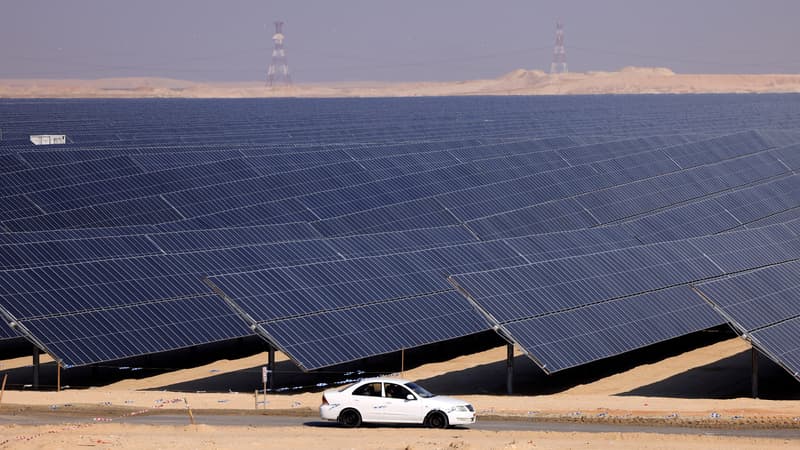Having profited for decades from fossil fuels, the Arab monarchies of the Gulf are now looking to green hydrogen to diversify their economies and, at the same time, realize their declared desire to fight climate change. Saudi Arabia, the United Arab Emirates but also the Sultanate of Oman are investing massively in this fuel that seems to solve many challenges: low in pollution, its potential uses are numerous, which could make it both profitable and environmentally friendly. planet.
Faced with falling oil revenues in recent years, “the Gulf states want to take the lead in the global hydrogen market,” Karim Elgendy, a researcher at British think tank Chatham House, told AFP. “They view green hydrogen as essential to remain a major energy powerhouse and to maintain their influence as demand for fossil fuels declines,” he observes.
However, it currently accounts for less than 1% of total hydrogen production, so-called green hydrogen, because it is made from renewable electricity, it is not yet commercially viable and could take several years to develop. Unlike hydrogen produced from polluting fossil fuels, green hydrogen is obtained from water using renewable energy such as wind, sun and hydroelectricity.
sun and wind turbines
While fossil fuels emit harmful greenhouse gases when burned, green hydrogen only emits water vapor. It is recommended in the long term in highly polluting industries: transport, navigation and steel industry. Saudi Arabia, the world’s largest crude oil exporter, is building the world’s largest green hydrogen plant in Neom, the futuristic megacity under construction along the Red Sea.
Worth $8.4 billion, the plant will integrate solar and wind power to produce up to 600 tons of green hydrogen per day by the end of 2026, officials said.
The United Arab Emirates, home to the only nuclear power plant in the Arab world, which will host the UN climate conference COP28 at the end of November, approved in July a hydrogen strategy aimed at making the country one of the top ten producers by 2031 ” Hydrogen will be an essential fuel for the energy transition,” Hanan Balalaa, manager of the Emirati oil giant ADNOC, told AFP. “The Emirates is well placed to take advantage of this.”
But it is Oman, far behind its neighbors in terms of fossil fuels, which is on track to become the sixth largest exporter in the world and the first in the Middle East by the end of the decade, estimated International Energy (IEA). . ) in a report published in June. The sultanate aims to produce at least one million tons of green hydrogen per year by 2030, and up to 8.5 million tons per year by 2050, “which would exceed the total demand for hydrogen in Europe today,” according to the IEA. .
“Fuel of the Future”
According to the audit firm Deloitte, the countries of the Middle East, led by the Gulf, will dominate this market in the short term. And even if, by 2050, North Africa and Australia should have the greatest potential, the Gulf countries will still be the “export leaders”. However, green hydrogen has not hampered the ambitions of Saudi Arabia and the Emirates to develop their hydrocarbon industries. According to experts, it will still be years before the Gulf countries can produce green hydrogen profitably.
“The Gulf countries will strive to maximize hydrocarbon sales for as long as possible,” said Aisha Al-Sarihi of the Middle East Institute at the University of Singapore. “It will take years of trial and error for green hydrogen to become a commercial product,” the expert told AFP, who sees the potential “fuel of the future” once the technology matures and at lower costs.
Former Emirati climate change minister Abdullah Al-Nuaimi told AFP that “the existing infrastructure for hydrogen transport is not adequate and will require massive investment.” For him, overcoming the challenges posed by hydrogen will take “too long.”
Source: BFM TV


